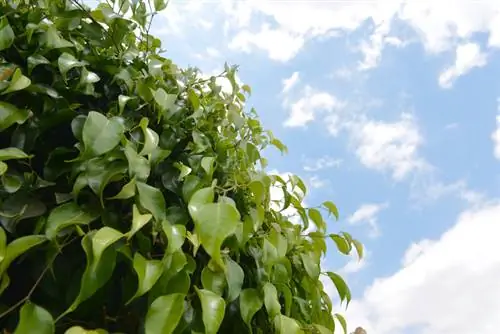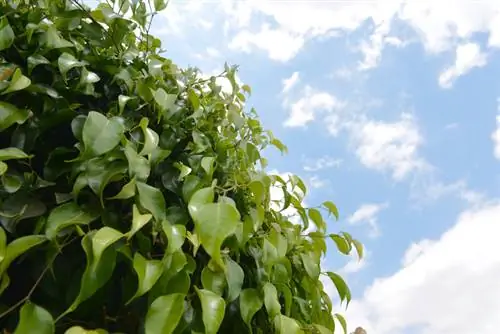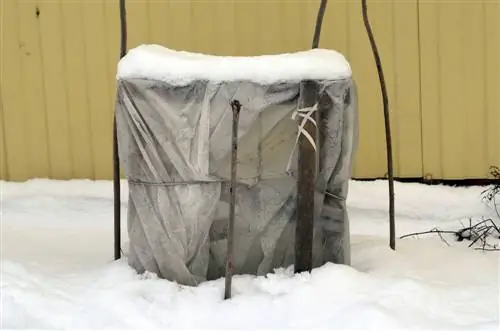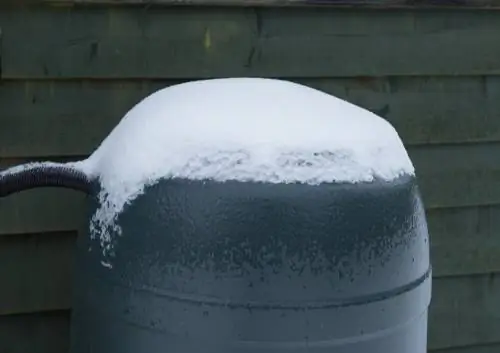- Author admin leonars@hobbygardeners.com.
- Public 2023-12-16 16:46.
- Last modified 2025-01-23 11:21.
It happened unexpectedly outside: cleared out prematurely in spring or put away too late in autumn - the birch fig is already exposed to frost. Now the question arises as to the frost tolerance of a Ficus Benjamini. Read a comprehensible answer here with tips for proper wintering.

Is a Ficus Benjamini frost tolerant?
The birch fig (Ficus Benjamini) does not tolerate frost as it comes from tropical regions and does not tolerate temperatures below 16 degrees Celsius well. On a frosty night, the plant may lose all of its leaves, but the branches may survive if the tissue underneath is still green.
Tropical origin signals zero tolerance for zero degrees
The birch fig is native to the tropical belt of our planet, where temperatures rarely fall below 20 degrees Celsius. As a result, the evergreen ornamental tree has no winter hardiness whatsoever. In fact, the exotic plant feels cold at temperatures below 16 degrees Celsius. If the mercury falls to freezing point for just one night, a Ficus benjamina will lose its life.
How to overwinter your birch fig properly
If your Benjamini was able to enjoy the summer outdoors, put the plant away in good time in the fall. With the following care program you can guide your evergreen roommate through the cold season unscathed:
- The ideal winter quarters are bright and warm with temperatures above 18 degrees Celsius
- High humidity of more than 50 percent is desirable
- Watering less compared to summertime
- Fertilize every 6 weeks from October to March
The sunnier the location in winter, the warmer the temperatures can be. So that the birch fig can overwinter in the well-heated living room, it should sit in the south-facing window. The temperature-controlled, bright bedroom is recommended as winter quarters, as the cooler temperatures here better compensate for the lack of light. The temperature minimum must not be fallen below under any circumstances.
Is my birch fig still alive after a frosty night
A well-cared for Ficus benjamina at an advanced age can have a robust constitution that can survive a night in temperatures around freezing point. Although the leaves all fall off, the branches can still be vital. Scrape off the bark a little. If the tissue is green, there are good prospects of new growth.
Tip
The birch fig rarely suffers frost damage during the day. Rather, it is nightly temperature drops that mean the end of the exotic plant. Before you move your Ficus benjamina out onto the balcony in spring, simply check the temperature level with a minimum-maximum thermometer (€11.00 on Amazon). This will undoubtedly show you in the morning how cold it was at night.






